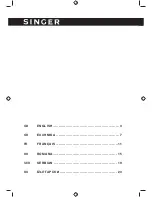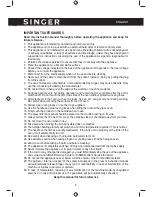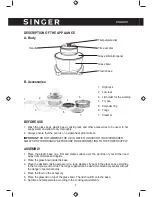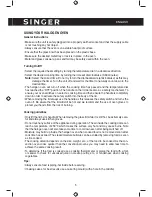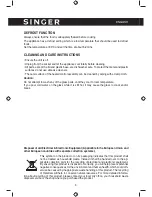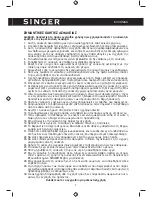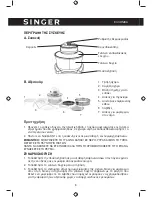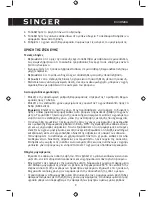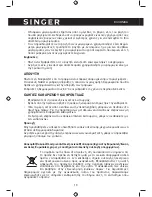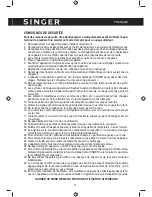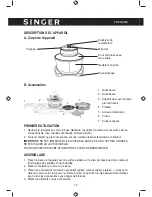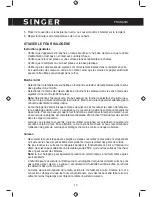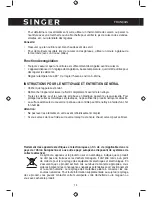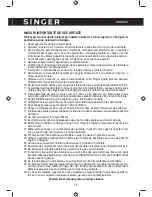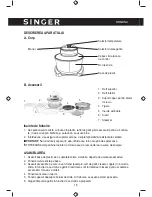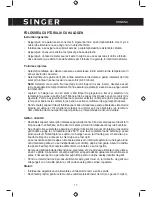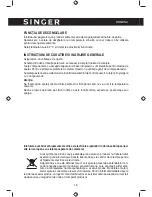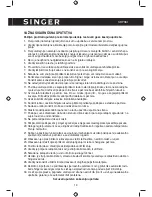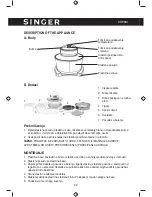
5
ENGLISH
USING YOUR HALOGEN OVEN
General instructions
• Make sure the unit is safely plugged into a properly earthed socket and that the supply cable
is not touching any hot object.
• Always ensure that the oven is on a stable heat proof surface.
• Ensure that the glass bowl has been placed on the plastic base.
• Make sure the desired metal tray or rack is in place, in the oven.
• Metal and glass cookware, pans and foil may be safely used within the oven.
Turning On/Off
• Select the required heat setting by turning the temperature dial in a clockwise direction.
• Select the desired cooking time by turning the time set dial clockwise (0-60 minutes).
Note:
Select the correct time. Do not try to turn the dial backwards (anticlockwise) as this may
damage the timer. Turn the unit off and wait for the timer to naturally count down to the
desired time.
• The halogen oven will turn off when the cooking time has passed and the temperature dial
has reached the “OFF” position. The handle on the lid works also as a safety mechanism. To
ensure your oven switches on, select a cooking time and then ensure the handle is completely
down in order to activate the safety switch into the body of the lid.
• When removing the lid always use the handle as this releases the safety switch and turns the
oven off. Be aware that the lid will still be hot and we recommend the use of oven gloves to
protect your hands from the risk of burning.
Cooking guidelines
• Only lift the lid by its handle. When removing the glass lid while it is still hot, be extremely care-
ful and always use kitchen gloves.
• Do not touch any surface of the appliance during operation. The air inside the cooking dome can
reach a temperature of 250
℃
which makes the surface very hot and may cause burns. Note
that the halogen oven will also take some time to cool down even after being switched off.
• Moisture may build up inside the halogen oven when cooked food is not removed soon after
cook time has expired. The steam/moisture build-up can be avoided by removing food as soon
as it is cooked.
• The cooking duration depends on the size, weight, etc., of the food to be cooked. As the con-
vection oven cooks quicker than the conventional ovens you may need to allow less time to
achieve the same cooking result.
• To determine if the food is cooked use a cooking thermometer or pierce the food with a fork
or skewer to check for uncooked juice on meats, poultry, etc., or tenderness when cooking
vegetables.
Tips:
• Always ensure food is piping-hot inside before serving.
• If baking cakes, for best results use a cake ring mould (with a hole in the middle).


